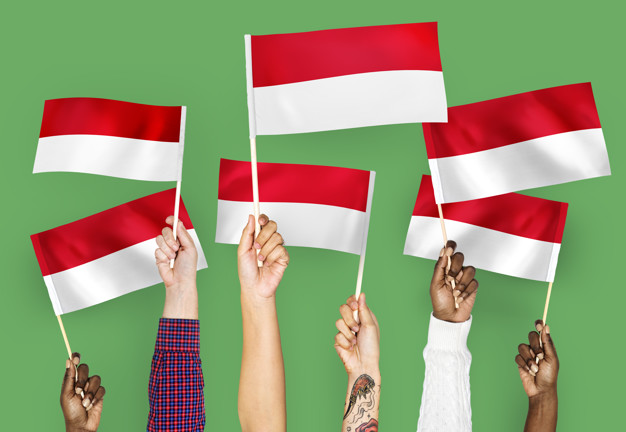Kapanlagi.com - Nationalism is an attitude that needs to be instilled from an early age. Nationalism is one of the attitudes that every Indonesian citizen must have. With nationalism, a person's love for the homeland will be preserved. This will certainly be very useful for maintaining national unity.
Nationalism is also often seen as an ideology of love and pride for the homeland. Someone with nationalism will be loyal to the nation and country. On the other hand, nationalism is an attitude that will be evident in everyday behavior. A person with a high sense of nationalism will always show a law-abiding attitude and love for their own culture.
Summarized from various sources, here's a review of nationalism as an attitude that every citizen must have.
1. Definition of Nationalism

(credit: freepik)
In the Indonesian Dictionary (KBBI), nationalism is defined as an ideology that teaches love and devotion towards one's own nation. In this context, the love referred to includes various aspects that are part of the country, such as culture, and so on.
A sense of nationalism should be instilled in every individual from an early age. With a sense of love for the homeland, the people and the country will have a sense of ownership and protection. In the long run, nationalism will also contribute to maintaining unity and solidarity.
2. Objectives of Nationalism
Nationalism is a noble attitude that every citizen should possess. As a noble attitude, instilling a sense of nationalism in every citizen has certain objectives. The objectives include the following.
1. Nationalism can be directed towards building and strengthening the bond of brotherhood in society.
2. Nationalism will cultivate love for the nation, country, culture, and all aspects within the country.
3. Nationalism will create harmonious relationships in society.
4. Nationalism can foster a spirit of sacrifice for the nation and country.
5. Nationalism will protect the nation and country from threats by enemies, both from within and outside.
3. Characteristics of Nationalism in the Levels of Nation and State
At the levels of nation and state, nationalism shows several specific characteristics. The characteristics of nationalism are as follows.
1. The existence of unity and national cohesion.
2. The existence of national struggles.
3. The main goal is independence and the establishment of an independent state where the highest power lies in the hands of the people.
4. The existence of modern organizations with a national nature.
5. Nationalism prioritizes intellect. This means that education is considered important because it plays a role in enlightening the nation's life.
4. Characteristics of Nationalism in the Individual Level

(credit: freepik)
Meanwhile, at the individual level as citizens, nationalism also has several characteristics. These characteristics are also embodied in Pancasila, especially the third principle. Here are some of these characteristics.
1. Love for the homeland and the Indonesian nation.
2. Willingness to sacrifice for the interests of the nation and state.
3. Able to prioritize the interests of the nation and state above personal or group interests.
4. A sense of pride in owning the Indonesian homeland.
5. Forms of Nationalism

(credit: freepik)
Nationalism can manifest in various forms. These various forms of nationalism can be applied in the social, national, and state life of a country. Here are some of these forms of nationalism.
1. Citizenship Nationalism
Citizenship nationalism, or civil nationalism, is a form of nationalism that gives the state political authority over the participation of the people, the will of the people, or political representation.
2. State Nationalism
State nationalism arises when a society has a strong sense of nationalism. However, on the other hand, the society is also given priority in overcoming universal rights and freedoms.
3. Cultural Nationalism
Cultural nationalism is nationalism demonstrated by the state's political position, particularly in relation to shared culture. Not based on descent like race, skin color, and others.
4.Romantic/Organic/Identity Nationalism
Romantic/organic/identity nationalism is formed when a country has political truth organically. This means that the truth is the result of a nation or race and has a romantic spirit.
5.Ethnic Nationalism
Ethnic nationalism is the spirit of nationalism in which a country has political truth based on the original culture or ethnicity of a society.
6.Religious Nationalism
Religious nationalism is a form of nationalism in which a country has political legitimacy based on religious similarity.
6. Examples of Nationalistic Behavior

(credit: freepik)
As mentioned earlier, a person's nationalism can also be seen in their behavior or attitude in daily life. Here are some examples of behaviors that reflect nationalism.
1. Obeying the laws and regulations of the country.
2. Preserving the nation's culture.
3. Creating and loving domestic products.
4. Willing to defend, uphold, and advance the country.
That is the review of nationalism as an important attitude and feeling to be possessed by every citizen. Hopefully, it is useful and can increase knowledge.
(kpl/psp)
Disclaimer: This translation from Bahasa Indonesia to English has been generated by Artificial Intelligence.
















